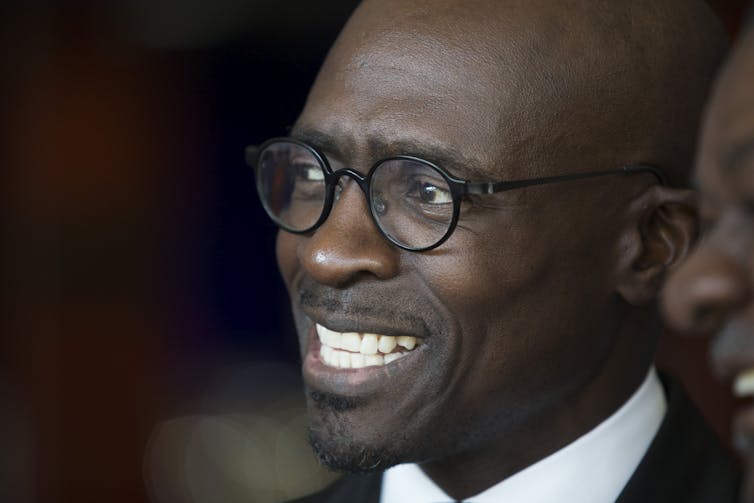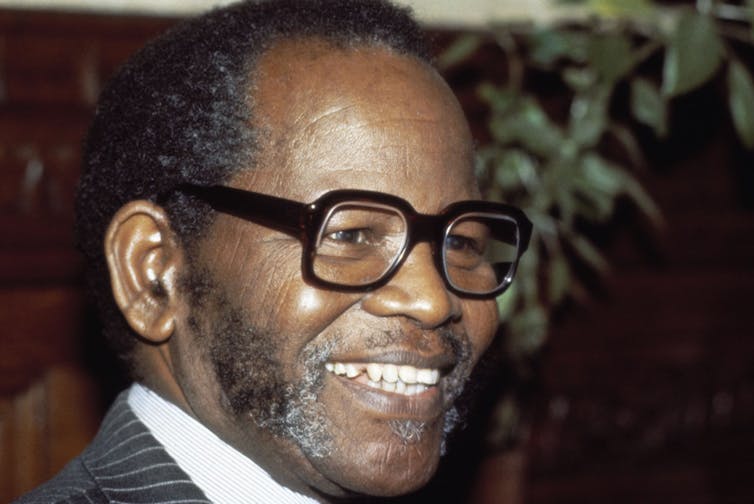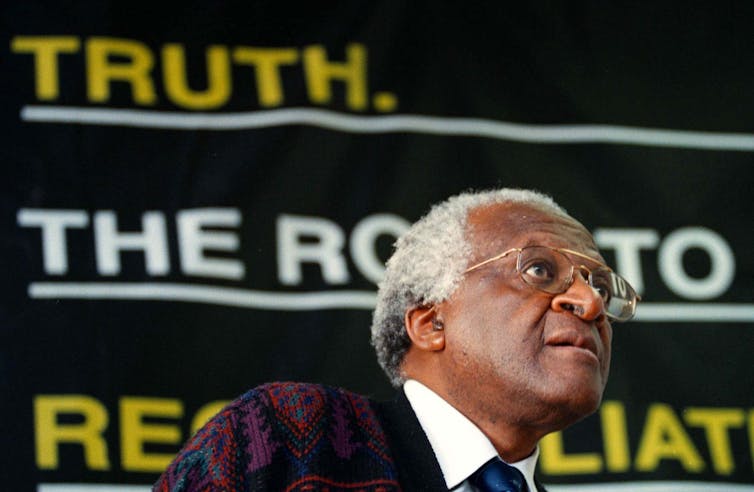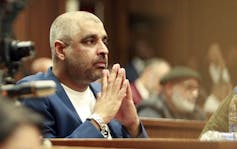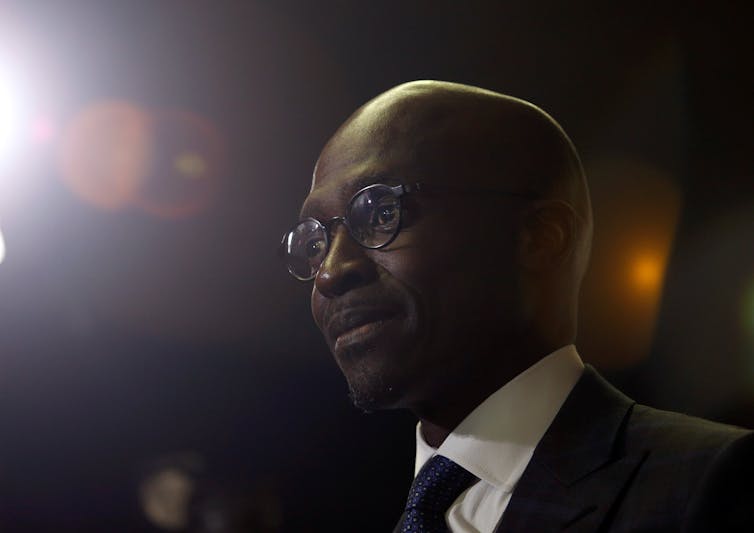
South African Finance Minister Malusi Gigaba kicked the can of change down the road during his medium term budget speech.
Reuters/Rogan Ward
Wittingly or unwittingly, South Africa’s Finance Minister Malusi Gigaba’s medium term budget policy statement places him – and champions of the market economy inside and outside the African National Congress – in a strong position and opens the way for real economic change. Whether the opportunity is taken is, of course, another matter.
Gigaba revealed that the government’s revenue shortfall is two thirds higher than expected, spending is growing, as is the deficit which will not, as promised, stabilise next financial year. And growth projections are down from a poor 1.3% to a negligible 0.7%.
The minister announced no new measures which are likely to turn the situation around and another set of ratings agency downgrades seem inevitable. This is partly because the agencies take their cue from domestic economists and business people, all of whom see a downgrade as inevitable. The only rational response is surely that the economy is in a downward spiral and that the minister cannot or will not do anything about it.
Perhaps. But there is another way of looking at the speech which sees many of these negatives as potential economic game changers.
One reason for seeing an opportunity for change is that the speech provides more than enough grounds to begin two of the tasks which must be confronted if the economy is to turn around in a sustainable way. It provides a powerful lever for everyone who wants to resist patronage projects. And the scale of the problem does send a signal to all economic actors that a sense of crisis – the acknowledgement that the economy must change course if it’s to grow and include more people – is needed and that negotiations to change the economy are essential.
Watershed moments?
Gigaba’s speech made it clear that the argument that money is simply not available is now an understatement. One casualty might be the nuclear power project on which President Jacob Zuma and his faction seem to have set their hearts. There have been suggestions that Zuma’s primary objective in his most recent cabinet reshuffle was to insert a loyal person into the energy portfolio so that he could make the nuclear deal happen.
Gigaba is now signalling that there is no money for the project and so the reshuffle’s purpose may have been undone.
And the argument for structural change, not mere tweaking, is much stronger now than before the speech. The harsh realities he explicitly set out mean that any finance minister who wanted to shut the door on patronage, begin cleaning up state owned enterprises and kick-starting talks with other key players, such as the private sector, is in a very powerful position. This could open the way for bargaining between all the economic interests on how to grow the economy and open it up to those who are excluded.
It does not mean that Gigaba will take the opportunity. The fact that he kicked the can of change down the road during his speech, proposing no new plans for change – and that he has already granted South African Airways a bailout – seem to show that his apparent desire to please everyone leaves him ill-equipped to take any of the steps suggested here.
But, if we assume – as many people who observe him do – that Gigaba’s chief goal is to advance his political career, the numbers he quoted today suggest that he is unlikely to do that unless he can show that he did something to change the realities he described. It’s possible that the minister knows that these realities won’t change unless he takes some decisive steps.
Stage set for trade-offs?
The speech offers no solutions but it can hardly be accused of ignoring or concealing the problem. On the contrary, Gigaba made a great deal of his refusal to “sugar coat” the problem. Insisting that South Africans must know how bad it is, he added that citizens needed to understand the “challenges” because only then
(will) we … know what to do … as well as what trade-offs must be made in the public interest.
That sounds very much like an attempt to set the stage for some unpopular decisions and for engaging with key economic actors on what trade offs should be made. Clearly, a minister who hopes to please as many people as possible is not going to initiate major changes without very solid backing – the speech may well have been an attempt to get that backing.
So Gigaba could be trying to set the stage for a process in which the awful state of the economy enables him to gain support from key economic actors to introduce the “trades off” he promised.
Of course, the minister may have no plans to use his leverage in this way. But, if so, the speech may have provided an important lever to those who would want him to do so. It clearly was an invitation to private economic interests to engage.
If businesses take Gigaba up on the offer, they may well find themselves in a more powerful position than they imagined, given the state of public finances and of the economy. They certainly have economic reality on their side and, since the minister is not zealously attached to either of the African National Congress factions, he may well be inclined to support them if the alternative seems likely to promise his political ruin.
Steven Friedman, Professor of Political Studies, University of Johannesburg
This article was originally published on The Conversation.
